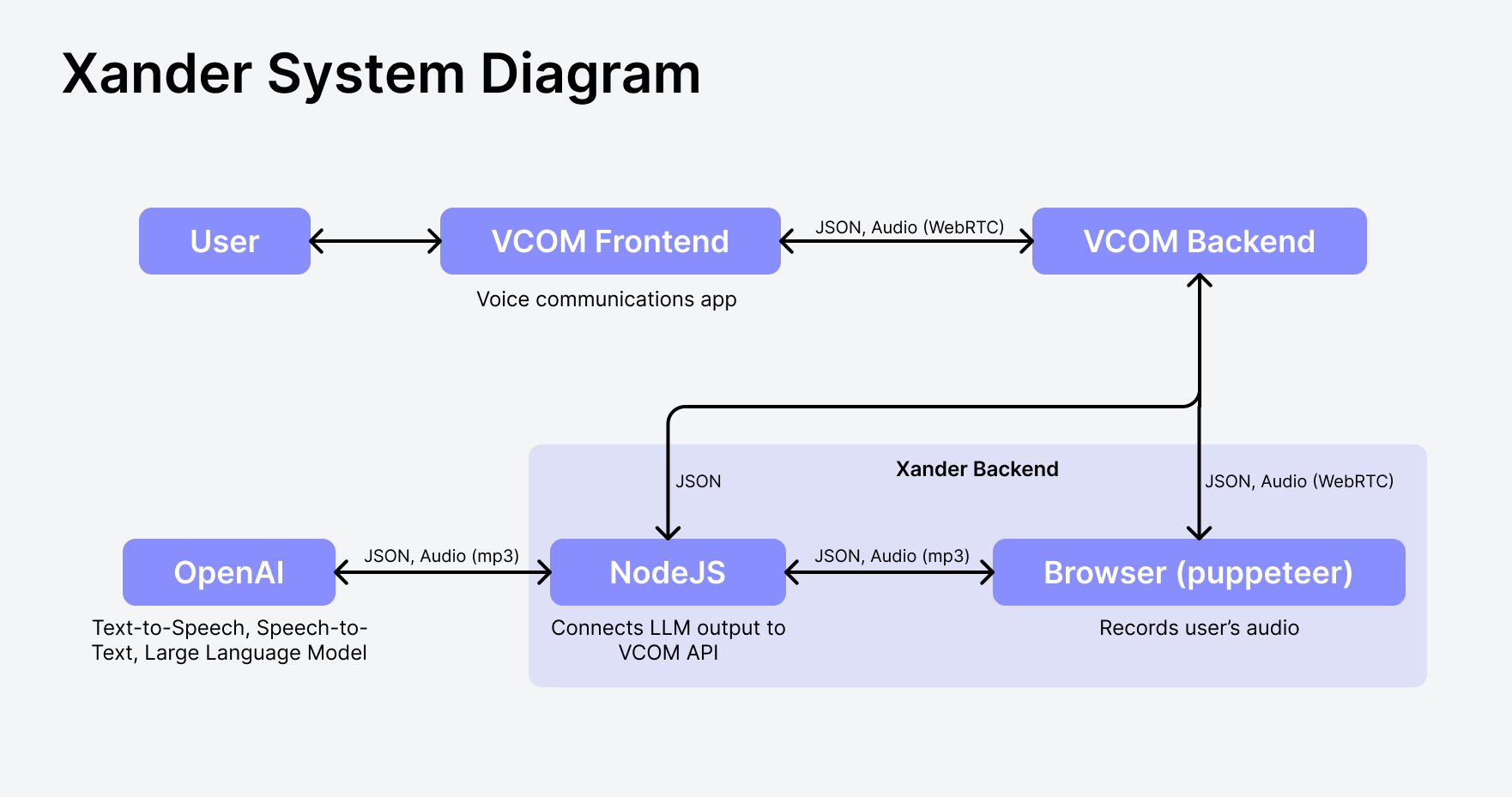Integrating an AI Assistant into VCOM
An exploration into improving UX with AI
Year: 2024
My Role: Developer
VCOM is a communications app which you can read more about here. As part of our ongoing efforts to improve the product I was tasked with integrating an AI assistant into VCOM. This project leverages NodeJS and cutting-edge technologies such as OpenAI's assistant SDK, text-to-speech SDK, and speech-to-text SDK.
Key Features:
Knowledge Base: Equipped with VCOM's technical documentation and a wealth of additional information, the AI assistant serves as a valuable resource for users seeking technical support.
Enhanced Efficiency: Leveraging VCOM's API, the assistant is capable of executing tasks on behalf of users, including intricate configuration changes that would typically require a multi-step process.
Demo and Testing Companion: One of the unique use cases for the AI assistant is its role as a companion for software demos and testing. In the context of a communications application like VCOM, having an interactive "person" to engage with during software trials is invaluable. The assistant not only simulates conversation but also provides answers to questions that new users may have, offering a comprehensive and interactive experience for testing and familiarizing users with the software.
Implementation:

I took the lead on developing the AI assistant, leveraging NodeJS as the backend framework to connect with VCOM using its API. Additionally, I integrated OpenAI's assistant API, which allowed me to run code in my NodeJS backend through its "functions" capability. I utilized OpenAI's text-to-speech and speech-to-text APIs, enabling the AI assistant to communicate with users through spoken language and conversational responses.